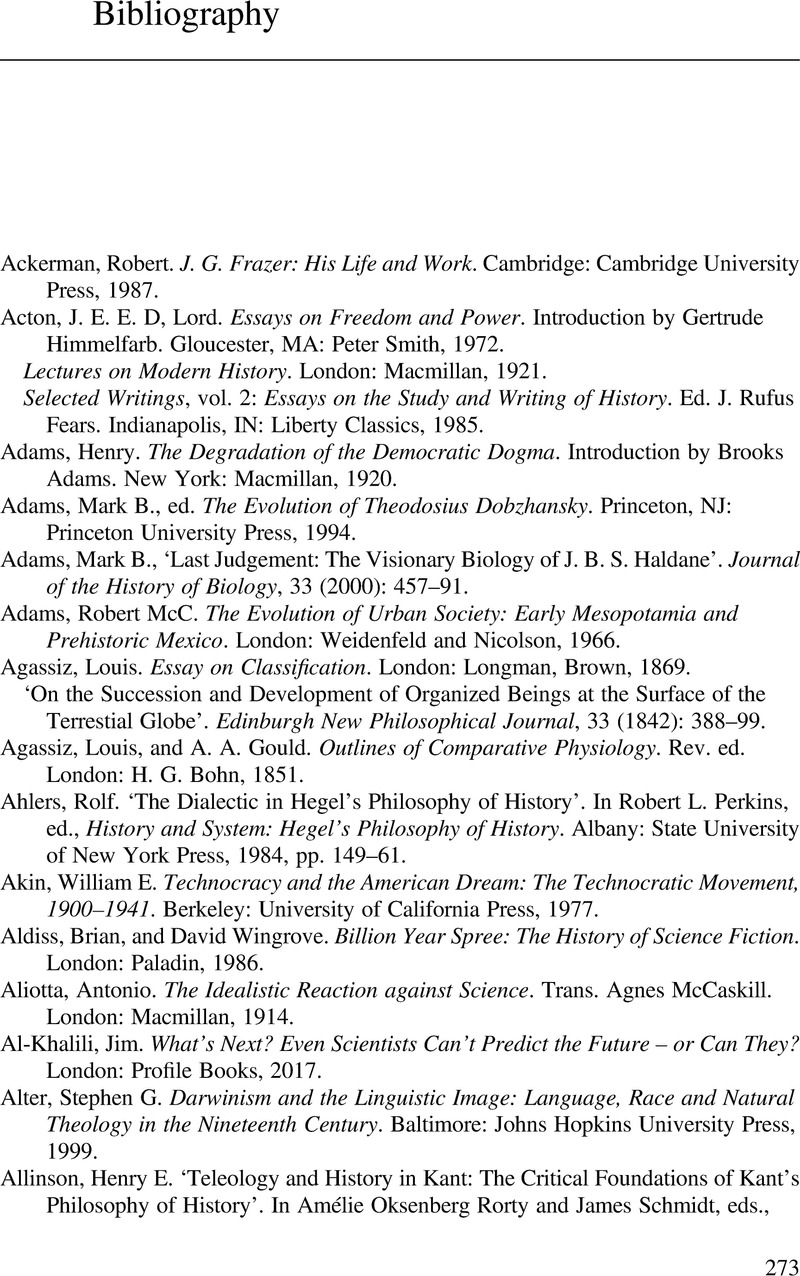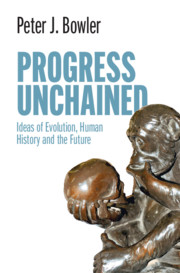Bibliography
Published online by Cambridge University Press: 11 February 2021
Summary

- Type
- Chapter
- Information
- Progress UnchainedIdeas of Evolution, Human History and the Future, pp. 273 - 301Publisher: Cambridge University PressPrint publication year: 2021

